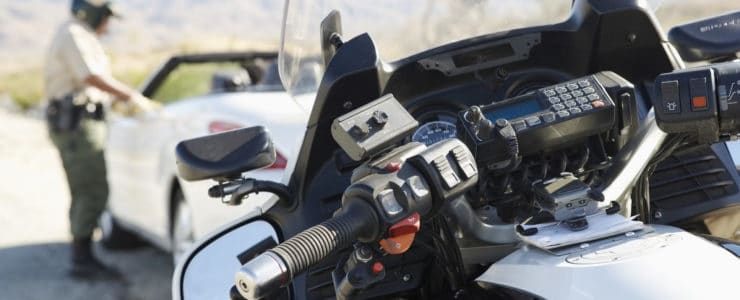
Getting a traffic ticket in Nevada can be an expensive and time-consuming hassle. Not only do you have to pay the fine, but it can also lead to increased insurance premiums and even loss of your driver’s license. If you find yourself facing a traffic violation, it is important to know your options for handling the situation.
You may feel overwhelmed by all the legal jargon involved with pleading your case or negotiating with the court, so having a good understanding of what is available to you will be key in finding success when dealing with a traffic ticket in Nevada. This article will provide information on pleas that are accepted by courts, strategies for defending against tickets, and helpful tips on how best to navigate this stressful process.
If you are facing a traffic ticket, we recommend reaching out to an experienced traffic attorney. They can provide insight into the legal process and help you decide which plea is best for your situation. Ticket Busters can help.
Traffic tickets can be expensive and time-consuming. If you’ve been issued a ticket, it’s important to understand your options so that you can make an informed decision about how to handle the situation. In some cases, you may even be able to reduce or dismiss the fine or have the points taken off of your driving record.
At Ticket Busters, we understand the confusion and stress that comes with receiving a traffic ticket in Nevada. With over 50,000 clients served in Southern Nevada, our skilled team of attorneys is dedicated to helping you make the best decision when faced with a traffic citation. Contact us today to discuss your legal options.
What Are the Different Traffic Ticket Pleas?
In Nevada, there are three basic pleas that drivers can make when citing a traffic violation: guilty, no contest, or not guilty. Each plea has its own set of consequences, so it is important to understand the difference between them before deciding which one to choose.
Here’s a high-level overview:
- Guilty Plea: If you plead guilty, it is an admission of guilt and the court will enter a judgment against you. You may be sentenced to pay a fine, receive other penalties such as community service or traffic school, or have your license suspended/revoked.
- Not Guilty: This plea is an assertion that you did not commit the traffic violation and that you wish to dispute the charge in court. If found not guilty, the charge will be dismissed and you will not have to face any penalties.
- No Contest (Nolo Contendere): With this plea, you do not admit guilt but the court can still enter a judgment against you. The consequences are typically similar to those of a guilty plea, and it is often used as an alternative when drivers do not wish to admit fault for the violation.
Let’s take a closer look at each of these options:
Guilty Plea
A guilty plea means admitting to the offense and accepting responsibility for the charges. By pleading guilty, you acknowledge committing the alleged violation and typically face a fine associated with the charge.
However, there may be some room for negotiation with the judge.
In some cases, you may be able to negotiate a lower fine or even an alternative sentence such as community service or traffic school. This is where having an experienced attorney can be beneficial, as they can work with the court to try and reduce the penalty for the violation.
Pros of a Guilty Plea
- Efficiency: Pleading guilty avoids the need for a trial and saves time and expenses.
- Possible leniency: Judges may consider a short explanation of the offense or an amendment to a non-moving violation.
Cons of a Guilty Plea
- Admission of guilt: Pleading guilty could have implications in civil court if damages are associated with the charge, such as an accident.
- Potential impact on insurance: Points may be added to your driving record, leading to increased insurance premiums.
Not Guilty Plea
If you believe you are not responsible for the traffic violation, you can plead not guilty. This plea indicates your intention to contest the charges and proceed to trial.
This plea may be beneficial if you have evidence to back up your defense, such as witness statements or video recordings. You will need to present this evidence at the trial and argue that it proves that you are not guilty of the citation.
Pros of a Not Guilty Plea
- Preservation of innocence: If found not guilty, there is no admission of guilt and no associated penalties.
- Opportunity to present a defense: Pleading not guilty allows you to present evidence and arguments in court to challenge the charges.
Cons of a Not Guilty Plea
- Time and resources: Contesting a traffic ticket requires time, effort, and potentially hiring legal representation.
- Potential consequences: If found guilty at trial, you may face more severe penalties than if you had pleaded guilty initially.
No Contest Plea
The third option is a no contest plea or “nolo contendere.”
This plea is similar to a guilty plea but with technical differences. You do not admit guilt but accept the punishment or fine associated with the charge.
What this means is that if you plead no contest, the court will enter a judgment against you and assign penalties. However, there is no admission of guilt which can be beneficial in civil court if there are damages associated with the charge.
Pros of a No Contest Plea
- No admission of guilt: You do not admit to committing the traffic violation but accept the assigned penalty or fine.
- Request for leniency: You may still have the opportunity to request no traffic school or an amendment to a non-moving violation.
Cons of a No Contest Plea
- Limited defense options: Pleading no contest forfeits your opportunity to present a defense, as you are not contesting the charges.
- Potential impact on insurance: Like a guilty plea, a no contest plea may result in points on your driving record and higher insurance prices.
What Happens After Making a Plea in Court
Upon making a plea in court, the judge will determine the appropriate penalties and fines. Almost all traffic trials are bench (non-jury) trials, meaning the judge alone will decide the case. The decision of the court is final and binding, so it is important to take all factors into consideration before making a plea.
The judge’s decision or verdict typically depends on the severity of the violation and your driving record. If you are found guilty, the judge may order you to pay a fine, complete community service, or attend traffic school.
For more serious offenses, you could be sentenced to jail time or have your license suspended/revoked. In some cases, an experienced attorney can help negotiate with the court to reduce the penalties.
Need a Traffic Ticket Lawyer? We Can Help
Ultimately, deciding which plea is best for your situation can be tricky and should not be taken lightly. If you have been cited with a traffic violation in Nevada, it is important to consult with an experienced attorney to determine the best course of action.
It is crucial to weigh the pros and cons of each plea before making a decision. You also need to do this in a timely manner too. When given a ticket, you typically have a certain amount of time to request a hearing and enter your plea. Failure to do so may result in additional penalties from the court.
Hiring a skilled traffic ticket lawyer like those at Ticket Busters can help you navigate this complex process, potentially save you money, and ensure the best possible outcome for your case.
As Southern Nevada’s premier traffic ticket and criminal defense law firm, Ticket Busters is committed to providing professional legal service, transparency, and regular communication. With our experienced team and client-focused approach, you can trust us to guide you through every step of the process. Contact Ticket Busters today for a free strategy session and take the first step towards resolving your traffic ticket.
Frequently Asked Questions
What plea options do I have after receiving a traffic ticket in Nevada?
After receiving a traffic ticket in Nevada, you will be given a court date. At the court date, you can plead guilty, not guilty, or no contest (nolo contendere). Each of these pleas has its benefits and drawbacks that must be considered before making a decision. It is important to consult with an experienced attorney for advice on how best to proceed in your case.
What is the process for entering a plea after receiving a traffic ticket?
After receiving a traffic ticket, you must enter a plea within the specified timeframe. If you fail to do this, the court may impose additional penalties or fines. You can enter your plea in person or by mail depending on the instructions of the court. It is important to consult with an experienced attorney if you have any questions about the process or your legal options.
What’s the difference between a guilty plea from a no contest plea?
A guilty plea is an admission of guilt, and the court will impose penalties accordingly. A no contest plea (also known as nolo contendere) is similar to a guilty plea but with technical differences. With a no contest plea, you do not admit guilt but accept the punishment or fine associated with the charge.
Can an attorney help negotiate with the court to reduce penalties?
Yes, an experienced attorney can help negotiate with the court to reduce penalties if they are found guilty at trial. An attorney can also provide advice and guidance on which plea option is best for your situation and help ensure the best possible outcome for your case. It is important to consult with an attorney as soon as possible to discuss legal options and strategies.


